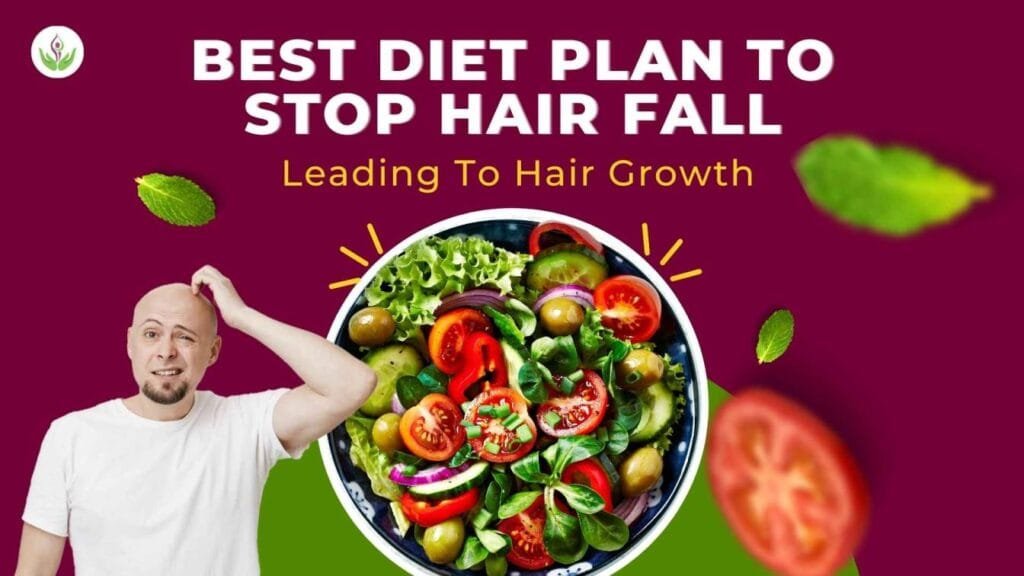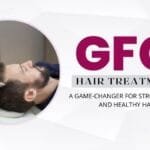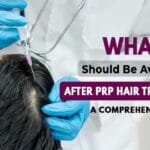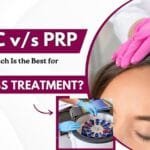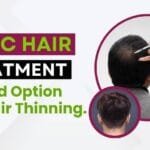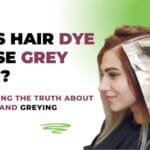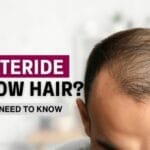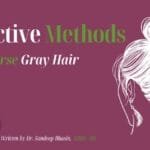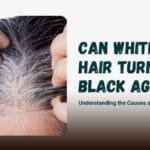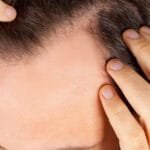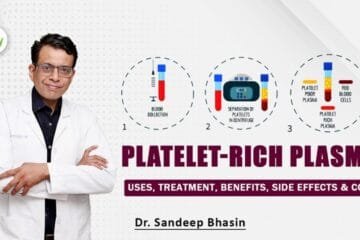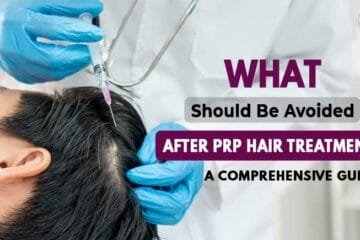Overview
Many people desire to have luscious and healthy hair, but achieving and maintaining optimal hair growth can be a challenge. While factors like genetics and pollution affect hair growth, your diet plays a significant role in promoting healthy hair. This article explores how the best diet for hair fall and growth can improve hair health, highlighting essential nutrients and foods that support strong and healthy hair.
Do you sometimes question your diet while suffering from extreme hair fall? if not, it’s time you did. Hair fall has become a common issue in both males and females due to lifestyle changes, and a completely overlooked aspect is our daily diet. To reduce hair fall, it is important to follow a diet plan for hair growth that includes biotin, antioxidants, vitamin D, protein, and other trace elements.
To follow a diet for hair fall prevention, here are some beneficial foods to include:
- Eggs as they are rich in selenium, protein, biotin, etc.
- Fatty fish since they are a good source of omega-3s and vitamin-D.
- Leafy greens are known to be a good source of folate, vitamins C and A, beta-carotene, and iron
- Fruits are rich in antioxidants like grapes, apricots, cherries, etc.
- Nuts and seeds, such as walnuts, chia seeds, and flax seeds, are abundant in zinc, selenium, and omega-3 fatty acids.
Following a healthy hair diet plan or a diet for hair fall control can help to reverse hair fall issues and nutritional deficiencies one may be suffering from.
Understanding Hair Growth
Before delving into the specifics of a hair growth diet, it’s essential to understand how hair grows. Hair growth occurs in cycles, with each strand going through a growth phase (anagen), a resting phase (telogen), and a shedding phase (catagen). The duration of each phase varies from person to person, but on average, hair grows about half an inch per month.
What Foods Cause Hair Loss?
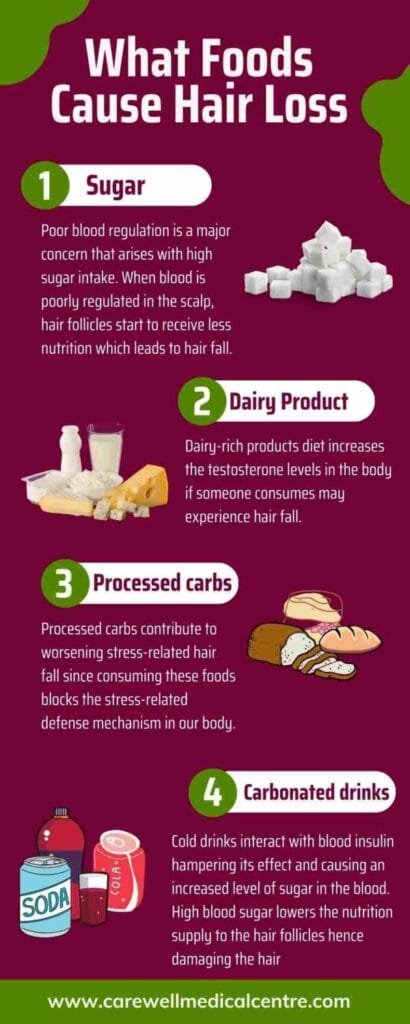
In most cases, hair fall results from an unbalanced diet that includes foods considered healthy but plays a role in promoting hair fall. Some of the foods that cause hair fall include:
- Sugar: One of the major concerns associated with a high sugar intake is poor blood regulation. Poor blood regulation in the scalp causes the hair follicles to receive less nutrition, resulting in stunted growth or hair fall. Insufficient blood supply to the scalp also leads to cold scalp or scalp inflammation, which again results in damaged hair growth.
- Dairy: It is believed that milk protein helps preserve hair strength, whereas if someone consumes a dairy-rich diet, they may experience hair fall. Dairy products are known to be rich in fats, which increase the testosterone levels in the body if consumed beyond a healthy threshold, causing hair fall.
- Processed Carbs: Processed carbs contribute to worsening stress-related hair fall since consuming these foods blocks the stress-related defense mechanism in our body. Refined carbs are also known to turn into sugar once consumed, and we know sugar is detrimental for hair growth.
- Carbonated Drinks: Cold drinks interact with blood insulin, hampering its effect and causing an increased level of sugar in the blood. High blood sugar lowers the nutrition supply to the hair follicles, hence damaging the hair.
- Fried and Processed Foods: These foods lack the necessary nutrients and can contribute to hair loss.
- Alcohol and Caffeine: Excessive consumption of alcohol and caffeine can dehydrate the body and negatively impact hair health.
Other Hair Growth Factors
Several factors can impact the rate of hair growth, and it’s crucial to address them for optimal results.
- Nutritional Deficiencies: Inadequate intake of essential nutrients, such as protein, vitamins, and minerals, can hinder hair growth.
- Hormonal Imbalance: Hormonal imbalances, particularly imbalances of androgens and estrogen, can disrupt the hair growth cycle.
- Scalp Health: A healthy scalp environment is vital for promoting hair growth. Conditions like dandruff or an oily scalp can hamper hair growth.
Short Summary:
Many foods that are conventionally considered healthy can actually contribute to severe hair fall. It’s important to know which foods support hair growth and help maintain healthy hair. Overconsumption of any food can have negative effects, and consuming foods high in milk protein or sugar can result in unhealthy, damaged hair. Following the best diet for hair fall and growth is key to nourishing your hair and keeping it strong and healthy.
Does Salty Food Cause Hair Loss?
Yes, the consumption of salty food can lead to hair fall. Due to the high intake of salt, the sodium particles settle around the hair follicles, blocking the absorption of nutrients. Due to less nutrient reception by the hair follicles, they weaken and start shedding hair.
Potassium is one of the main minerals required by the body to maintain healthy hair. Frequent urination, a result of high sodium intake, leads to low potassium levels. Thus, consuming salty foods leads to frequent urination and loss of potassium from the body. Certain foods, like bananas or whole foods, can help increase potassium levels in the body.
Ways to decrease sodium intake:
- Avoid eating out and cook at home
- Check food labels to avoid any high-sodium items
- Reduce the consumption of processed or preserved foods
Avoid adding extra salt to your meals; instead, enhance the flavor by adding different herbs.
Short Summary:
If your question is, ‘Can low sodium cause hair loss?’ Well no, it does not; on the other hand, consuming salty food directly affects the blood regulation process in the scalp and the level of potassium, reducing the number of healthy hair follicles. To reduce the intake of salty food, it is important to read labels before buying diet products and to avoid the consumption of processed or preserved food items.
Importance of Diet for Hair Growth
A well-balanced diet plays a crucial role in promoting hair growth. Providing the necessary nutrients ensures the optimal functioning of hair follicles and supports the production of strong and vibrant hair strands.
Essential Nutrients for Hair Growth
To stimulate hair growth, certain nutrients are particularly beneficial. Adding these to your diet can improve hair health and growth.
- Protein: Keratin, a type of protein, primarily makes up hair. Including sources like lean meat, eggs, and legumes ensures an adequate supply of protein for hair growth.
- Iron: Iron deficiency can lead to hair loss. Foods rich in iron, such as spinach, lentils, and lean red meat, should be part of your diet.
- Vitamins: Vitamins, particularly vitamin A, vitamin C, and vitamin E, are essential for hair growth and maintenance. Include citrus fruits, leafy greens, and nuts to meet your daily vitamin requirements.
- Omega-3 Fatty Acids: These healthy fats promote scalp health and reduce inflammation. Include sources such as fatty fish, flaxseed, and chia seeds in your diet.
- Biotin: Biotin, also known as vitamin B7, is crucial for maintaining healthy hair. Eggs, almonds, and avocados are excellent sources of biotin.
Which Diet is Best for Stopping Hair Fall?
Our hair is known to go through three main changes: growth, changeover, and hair fall, respectively. A healthy amount of hair falls ranges from 25 to 100 hairs per day, but when this number increases with no increment in hair growth, it becomes a major hair fall issue.
A balanced diet and the right foods can nourish the hair follicles, treating hair fall until it’s a genetic or medical issue. Here are some foods to incorporate into your diet to stop hair fall immediately:
- Carrots
- Prunes
- Avocados
- Eggs
- Oats
- Spinach
- Sweet potatoes
- Low-fat dairy products
- Beans
- Lentils
- Meat
- Black beans or Rajma
Short Summary:
Foods for hair growth and thickness include those rich in folate, zinc, iron, vitamins A and C, omega-6 fatty acids, and more. Each vitamin and mineral plays a crucial role in maintaining hair health. Iron supports the thickening and coloration of hair, vitamin A helps keep hair moisturized, and calcium promotes adequate hair growth. Therefore, consuming the best diet for hair fall and growth is essential to prevent hair fall and support healthy hair growth.
What Diet Helps Regrow Hair?
Incorporating the following foods into your diet can provide the necessary nutrients to support hair growth:
- Eggs: Rich in protein and biotin, yolks are an excellent food for promoting hair growth.
- Spinach: Packed with iron, vitamins A and C, and folate, it nourishes the hair follicles and promotes growth.
- Salmon: An excellent source of omega-3 fatty acids and protein, salmon supports scalp health and encourages hair growth.
- Sweet Potatoes: Loaded with beta-carotene, which converts to vitamin A, sweet potatoes promote healthy hair growth.
- Nuts and Seeds: Almonds, walnuts, flaxseeds, and chia seeds are rich in protein, omega-3 fatty acids, and biotin, all of which contribute to hair growth.
- Berries: Antioxidants and vitamins found in blueberries, strawberries, and raspberries support hair growth.
- Greek Yogurt: High in protein and vitamin B5, Greek yogurt aids in hair growth and strengthens the hair shaft.
- Oysters: Oysters are rich in zinc, which helps regulate hormone levels and promote hair growth.
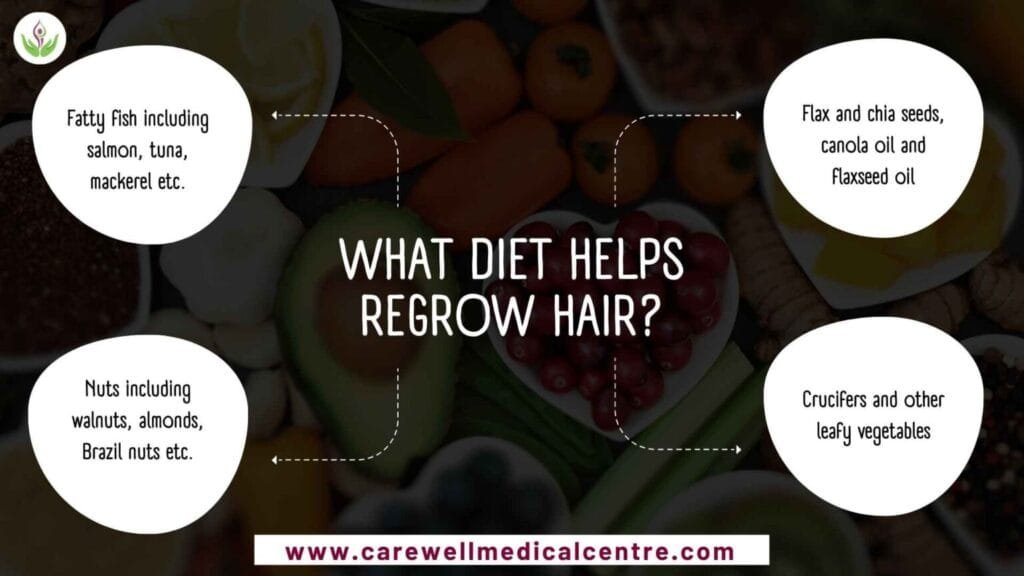
A balanced diet can help to maintain good hair and skin health. Your body becomes a version of what you decide to nourish it with; an unhealthy diet will reflect a noticeable change in your hair and skin. Here are the top 5 foods to prevent hair loss:
- Fatty fish, such as salmon, tuna, and mackerel, are commonly consumed.
- Flax and chia seeds, canola oil, and flaxseed oil
- Nuts, including walnuts, almonds, Brazil nuts, etc.
- Crucifers and other leafy vegetables
- Tofu and soybean
Other essential nutrients include:
- Proteins that can be sourced through meat, lentils, eggs, and soy products
- Folic acid, or Vitamin B12, can be sourced through bananas, potatoes, and spinach
Multivitamin supplements can provide trace elements such as zinc, magnesium, potassium, iron, and biotin to prevent baldness.
Short Summary:
Sourcing the right nutrients for hair growth is important; it not only makes you lead a healthy lifestyle but also enhances your body exteriorly. Proteins, trace elements, vitamins, and minerals are all the best foods for hair growth.
Which Fruit is Best for Hair?
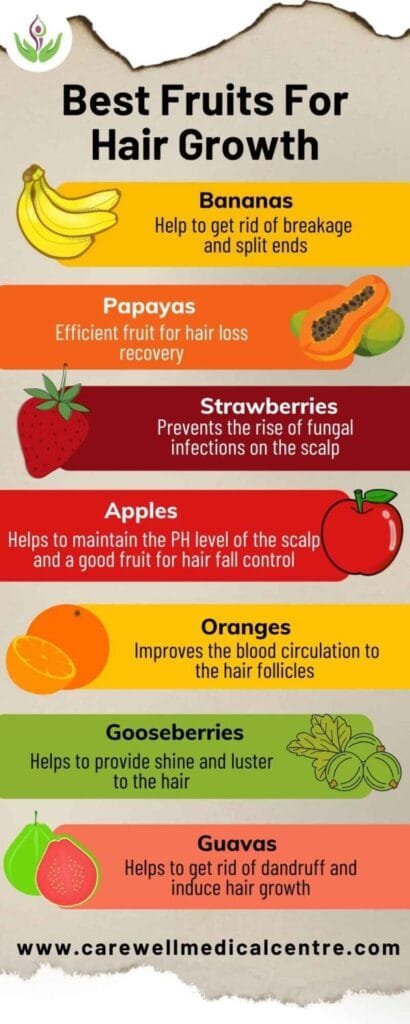
Fruits are rich in vitamins and minerals, serving nutritional benefits to the hair follicles and allowing them to grow efficiently. With modernity, we have indulged in fashion, and it has a direct effect on our hair. Regular use of styling tools and harsh chemicals results in dull and damaged hair. Avoiding chemical treatments and using fewer hair styling tools can help restore the quality of your hair, but you can also achieve this by consuming fruits. Here are some recommendations for fruits that promote hair growth and thickness.
- Bananas: help to get rid of breakage and split ends
- Papayas: efficient fruit for hair loss recovery
- Strawberries: prevents the rise of fungal infections on the scalp
- Apples: help to maintain the pH level of the scalp and are good fruit for hair fall control
- Oranges: improve the blood circulation to the hair follicles
- Gooseberries: help to provide shine and luster to the hair
- Guavas: Helps to get rid of dandruff and induce hair growth
Which fruit is rich in biotin?
Biotin, a vitamin that aids in converting food into energy and is crucial for the normal functioning of hair, skin, and the brain, is abundant in certain fruits. It is a water-soluble vitamin and does not retain in the body, which makes it a necessary supplement. You can either fulfill your daily biotin requirements by supplementing or by consuming biotin-rich foods. Here are some biotin-rich fruits that help in hair growth:
- Bananas
- Avocados
Short Summary:
Research has shown that fruits positively impact hair health. Every fruit contributes to hair growth differently Papayas and apples aid in preventing hair loss, strawberries aid in preventing fungal infections on the scalp, and guavas aid in eliminating dandruff, among others. Including fruits in your diet can help to increase hair growth and keep your hair healthy.
Which Vitamin is Best for Hair Fall?
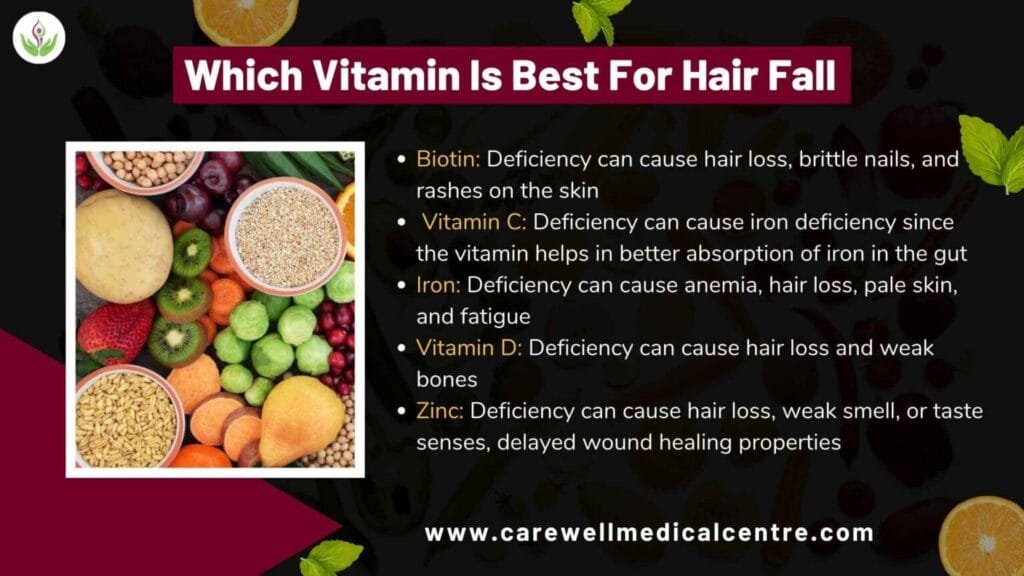
Not supplementing the right vitamins and minerals through a proper diet can result in hair fall. According to several studies, it is now evident that vitamins and minerals play an important role in maintaining hair health, but if you exceed the consumption of any of the vitamins or minerals, it can promote hair fall instead of treating it. Here are some vitamins and minerals to supplement your daily diet to achieve healthy hair:
- Biotin: deficiency can cause hair loss, brittle nails, and rashes on the skin.
- Vitamin C: deficiency can cause iron deficiency since the vitamin helps in better absorption of iron in the gut.
- Iron: deficiency can cause anemia, hair loss, pale skin, and fatigue.
- Vitamin D: deficiency can cause hair loss and weak bones.
- Zinc: deficiency can cause hair loss, weak smell or taste senses, and delayed wound healing properties.
What food has biotin?
As previously mentioned, biotin plays a role in the normal functioning of hair, skin, and the brain. A biotin-rich diet can help to nourish the hair, promoting hair growth. The amount of biotin varies from food to food; meat and other non-vegetarian options contain more biotin than vegetarian food options, and canning of food products is known to lower the biotin in food. Here are some biotin-rich foods to include in your diet:
Vegetarian options:
- Apples
- Sunflower seeds
- Sweet potato
- Almonds
- Broccoli
Non-vegetarian options:
- Egg
- Salmon pink
- Pork chop
- Beef liver
- Hamburger patty
Supplementing biotin for hair loss issues through diet or artificially has been known to help with hair fall in various individuals, although there is less scientific evidence backing up the phenomenon.
What Lack of Vitamins Causes Hair Loss?
The deficiency of vitamins can cause a significant amount of hair fall in certain individuals. We understand that vitamins and minerals aid in the growth of hair follicles and the digestion of cells. Here are the best vitamins for hair fall prevention:
- Vitamin C
- Vitamin B7
- Vitamin B12
- Vitamin D
- Vitamin B5
- Vitamin E
Short Summary:
It is now evident that there is no particular vitamin that benefits hair growth but a combination of them that supports the process of hair follicle regulation. Consuming a diet rich in vitamins for hair growth and thickness can help bridge the deficient gap. Vitamins A, E, D, B12, B7, and C are all the best multivitamins for hair fall reduction.
What Veg is Good for Hair Growth?
Do you also dream of having long and healthy hair? The wait is over; fill your plate with vegetables that help in the growth and smoothening of your hair. Here is a list of vegetables to include in your diet for hair growth:
- Cucumber
- Spinach
- Garlic
- Beetroots
- Tomatoes
- Onions
- Sweet potatoes
- Carrots
- Green chilies
- French beans
- Curry leaves
Indian Diet Plan for Hair Growth
Some people find it challenging to sustain hair health due to the unavailability of certain vegetables, fruits, or other groceries in the subcontinent. However, by incorporating protein, vitamins, minerals, trace elements, and biotin-rich foods, you can support hair growth. The best diet for hair fall and growth includes simple, easily available foods in India. Here is a list of the best foods for hair growth in India that can help nourish your hair from within:
- Eggs
- Spinach and other leafy vegetables
- Citrus fruits: oranges or sweet lime
- Nuts and seeds: Sunflower seeds, walnuts, almonds
- Whole grains: wheat, beans, legumes, lentils
- Carrots
- Sweet potatoes
- Easily available meat
Diet Chart for Hair Growth
A well-balanced diet chart for hair growth can significantly impact the health of your hair. The best diet for hair fall and growth includes a variety of nutrients such as vitamins, minerals, and proteins that nourish hair follicles, strengthen strands, and support healthy hair growth. By incorporating foods rich in biotin, iron, zinc, and omega-3 fatty acids, you can effectively promote hair health and reduce hair fall. This diet, combined with healthy lifestyle habits, can help you achieve thicker, stronger hair over time.
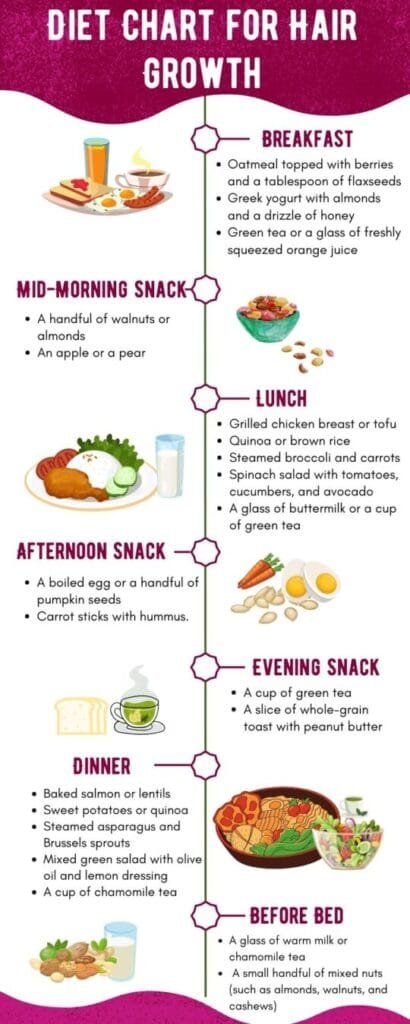
A healthy diet plays a crucial role in promoting hair growth. Here’s a sample diet chart that includes foods rich in nutrients beneficial for hair growth:
1. Breakfast:
- Oatmeal topped with berries and a tablespoon of flaxseeds
- Greek yogurt with almonds and a drizzle of honey
- Green tea or a glass of freshly squeezed orange juice
2. Mid-Morning Snack:
- A handful of walnuts or almonds
- An apple or a pear
3. Lunch:
- Grilled chicken breast or tofu
- Quinoa or brown rice
- Steamed broccoli and carrots
- Spinach salad with tomatoes, cucumbers, and avocado
- A glass of buttermilk or a cup of green tea
4. Afternoon Snack:
- A boiled egg or a handful of pumpkin seeds
- Carrot sticks with hummus
5. Evening Snack:
- A cup of green tea
- A slice of whole-grain toast with peanut butter
6. Dinner:
- Baked salmon or lentils
- Sweet potatoes or quinoa
- Steamed asparagus and Brussels sprouts
- Mixed green salad with olive oil and lemon dressing
- A cup of chamomile tea
7. Before Bed:
- A glass of warm milk or chamomile tea
- A small handful of mixed nuts (such as almonds, walnuts, and cashews)
Additionally, ensure you drink plenty of water throughout the day to stay hydrated. Remember, this is just a sample diet chart, and it’s always beneficial to consult with a healthcare professional or a registered dietitian for a personalized plan based on your specific needs and health conditions.
What is Good for Hair Growth and Thickness?
Is it possible to thicken your hair and rejuvenate its shine and luster? Yes, with proper supervision it is possible to have thick hair. Following the tips mentioned below can help you have thicker and fuller hair:
- Keep yourself hydrated: Make a note to drink four to eight glasses of water every day to keep your scalp away from dehydration and avoid dandruff, breakage, itchiness, etc.
- Include healthy fats in your diet: Fats contain omega-3 fatty acids that promote hair growth. Incorporate salmon, avocadoes, sweet potatoes, etc.
- Focus on increasing blood circulation to the scalp. To increase blood flow to the scalp, you should try exercising every day; staying active increases blood flow to the scalp and sebum production.
- Comb your hair properly: Combing your hair every day effectively can help to spread the sebum throughout the scalp and help to grow it effectively.
Healthy Eating Habits for Hair Growth
In addition to specific foods, adopting healthy eating habits can further enhance hair growth:
- Maintain a Balanced Diet: Ensure your meals consist of a variety of nutrient-rich foods to provide all the necessary vitamins and minerals for hair growth.
- Limit Processed Foods: Reduce your intake of processed foods, as they frequently lack the nutrients necessary for healthy hair.
- Stay Hydrated: Drink an adequate amount of water daily to keep your hair and scalp hydrated.
Conclusion:
Hair fall is common, but it becomes problematic when hair follicles lack proper nutrition, leading to increased hair loss and poor growth. Many overlook the role diet plays in promoting hair health. By consuming nutrient-poor foods, we impact our body both internally and externally. The next time you reach for foods high in sugar, milk protein, or salt, consider their effects on hair health. By following the best diet for hair fall and growth, incorporating nutrient-rich foods, and adopting healthy habits, you can support hair growth and improve hair health. Stay patient, as results take time.
FAQs
While a healthy diet plays a crucial role in promoting hair health, reversing hair loss solely through diet is unlikely. Hair loss can have various causes, including genetics, hormonal imbalances, and medical conditions. A balanced diet can support hair growth, but it may be necessary to combine it with other treatments for an effective reversal of hair loss.
The time it takes to see results from a hair growth diet varies from person to person. Generally, it takes several months before noticeable changes occur. Hair growth is a slow process, and factors such as individual metabolism, overall health, and the extent of hair loss can influence the timeline. Consistency and patience are key when following a hair growth diet.
Supplements are not always necessary for hair growth, especially if you have a well-balanced diet. However, certain nutrients like biotin, vitamin D, and iron are known to support hair health and growth. If your diet lacks these essential nutrients or if you have specific deficiencies, supplements may be beneficial. It’s best to consult with a healthcare professional before starting any new supplements.
While protein is important for hair growth, excessive protein intake doesn’t necessarily lead to more hair growth. The body has specific protein requirements, and consuming more than needed generally won’t result in additional hair growth. It’s important to maintain a balanced diet that includes adequate protein along with other essential nutrients for optimal hair health.
There is no specific time of day that is ideal for consuming foods for hair growth. The key is to maintain a balanced diet throughout the day, ensuring you get all the necessary nutrients. However, it’s generally recommended to spread your nutrient intake evenly across meals to support overall health and nutrient absorption.
A hair growth diet can potentially help with hair thinning, especially if the thinning is due to nutrient deficiencies or poor dietary habits. A diet rich in essential vitamins, minerals, and proteins can improve hair health, strengthen hair follicles, and reduce hair thinning. However, it’s essential to identify the underlying cause of hair thinning, as it can have various factors, including genetics and medical conditions.
Yes, stress can affect hair growth, even if you have a healthy diet. High levels of stress can disrupt the hair growth cycle and lead to temporary hair loss. While a healthy diet can support hair health, managing stress through relaxation techniques, exercise, and proper self-care is also crucial for maintaining healthy hair growth.
Yes, changing your diet to include hair-healthy foods can lead to improvements in hair growth. A balanced diet that provides essential nutrients can support hair follicle health and promote hair growth. However, individual results may vary, and it’s important to maintain consistency and give your body enough time to show the effects of dietary changes.
While it’s not always necessary to consult a doctor or nutritionist before changing your diet for hair growth, it can be beneficial, especially if you have underlying health conditions or specific dietary requirements. A healthcare professional can assess your individual needs, provide personalized advice, and ensure that your dietary changes align with your overall health goals.
Certain foods can promote hair thickness due to their nutrient content. These include foods rich in biotin (eggs, nuts), vitamin E (spinach, avocados), omega-3 fatty acids (fatty fish, flaxseeds), iron (leafy greens, lean meats), and protein (legumes, poultry). Including a variety of these nutrient-dense foods in your diet can support hair thickness and overall hair health.

